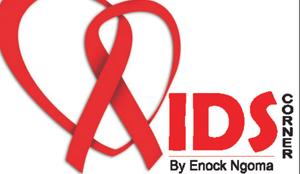 LAST week, I received this mail from Agnese Ruggiero, the World Kidney Day campaign coordinator who is based in Belgium.
LAST week, I received this mail from Agnese Ruggiero, the World Kidney Day campaign coordinator who is based in Belgium.
I thought we can share this information because all drugs that we consume including anti-retrovirals (ARVs) have an effect on our kidneys:
On Thursday March 10, we were celebrating the 11th edition of World Kidney Day (WKD), a joint initiative organised by the International Society of Nephrology (ISN) and the International Federation of Kidney Foundations (IFKF).
WKD is the most widely celebrated event focused on kidney health across the globe. This year’s theme ‘Kidney Disease and Children’ reminds us that we must all think about our kidneys from an early age and that most adult renal diseases are actually initiated in childhood.
With 10 per cent of the population worldwide having some form of kidney damage, there is a long road ahead to raise awareness about the dangers of kidney disease.
The latest numbers show that Chronic Kidney Disease (CKD) is predicted to increase by 17 per cent over the next decade and is now recognised by the World Health Organisation (WHO) and other organisations as a global public health issue.
Kidney diseases affect millions of people worldwide, including many children. Some children are born with kidney disease and others develop it when still very young.
The symptoms of kidney disease in children are often nonspecific, which means that there is a risk that kidney problems may be missed in children.
In childhood the leading causes of kidney failure in children are hereditary conditions, often lacking obvious indicators such as hematuria (red blood cells in the urine), hypertension (high blood pressure) or edema (swelling).
Additionally, kidney disease that becomes evident in adulthood may occur more often in persons with risk factors that can be detected in childhood.
It is therefore, crucial that we encourage and facilitate education, early detection and a healthy lifestyle in children, starting at birth and continuing through to old age, to combat the increase of preventable kidney damage including Acute Kidney Injury (AKI) and CKD and to treat children with inborn and acquired disorders of the kidney
Julie Ingelfinger, MD, Professor of Pediatrics at Harvard Medical School and senior consultant in Pediatric Nephrology at Mass General Hospital for Children, underlines the importance of CKD awareness and prevention from early age on: “It is important to be aware of and to detect pediatric kidney disease. Kidney disease can be treated, even in our smallest patients. Further, because much of adult kidney disease has its roots in childhood, it is critical to focus on infancy and childhood if we are to prevent and cure kidney diseases.”
On world Kidney Day, move feet!-Keeping fit reduces high blood pressure and obesity, two of the leading causes of kidney disease.
This is why, leading up to March 10 and beyond, we encourage civil society, decision-makers, health ministries and professionals as well as patients to move their feet for healthy kidneys.
This gesture is a vivid reminder that regular exercise and physical activity help to reduce the risk of developing kidney disease.
Moving our feet is a simple yet powerful action that creates a link between our health and our daily routine.
Well, we have heard the importance of keeping our kidneys healthy. I am sure we all need to be healthy because kidney failure is a serious disease that in most cases leads to early death.
Comments: knoxngoma@gmail.com or text/call +260955883143






